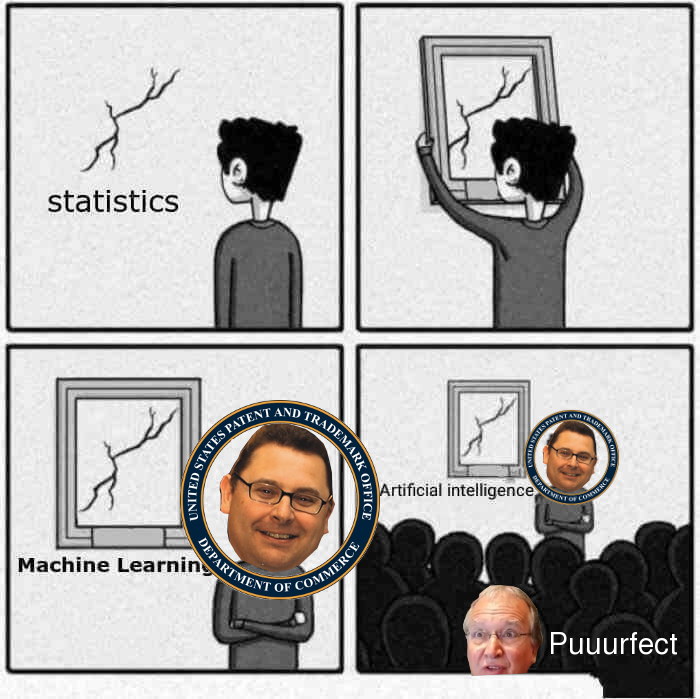

"By today's definition of it, I've done "HEY HI" since I was 20, but we never called it that. We called those algorithms all sorts of other things."One of the most pervasive hype waves at the moment is "AI", which we call "HEY HI" as means of ridicule. We ridicule the term for the most part; it has become utterly ridiculous and it covers just about everything, in the same way "cloud" and "smart" do. By today's definition of it, I've done "HEY HI" since I was 20, but we never called it that. We called those algorithms all sorts of other things. Terms like "machine vision" or "game theory" are a lot more meaningful and descriptive than "HEY HI".
Days ago the UK-IPO and EPO were both pushing "HEY HI" agenda in public. It was about patents rather than "HEY HI". To quote (with buzzword substitution): "Pihlajamaa added that there are three main categories of HEY HI: inventions on HEY HI such as machine learning, inventions which use HEY HI, and inventions created by HEY HI."
Marvelous, gentlemen! Just marvelous!
Where can I buy some HEY HI?
Show me to your HEY HI leader!
These buzzwords for algorithms would be merely cause for amusement and ridicule if they weren't actively used to feed patent trolls with software patents. There's nothing comical about extortion/blackmail leveraging fake patents that are invalid as per the EPC.
Articles like the one cited above show a degree of complicity inside the media; there have been lots of these lately from World Intellectual Property Review (WIPR), as we noted days ago. We saw at least four in the past couple of days alone. All about HEY HI! In relation to patents:
The EPO’s discussions on AI with member states have focused on four aspects: patentability, disclosure, persons skilled in the art, and inventorship.
With respect to disclosure, Pihlajamaa said there is concern over ‘black box’ patenting, with inventions in the AI space not being sufficiently disclosed in patent applications.
Pihlajamaa added: “I have seen a lot of new technologies and often, when we talk about new technology, there is a new language created…a new [set of] terminology. It takes some time before there is a general agreement on how we express these different things.
“But, as I hear from examiner colleagues, we are already there. There’s already a lot of common understanding about how to draft patent applications [in the AI technology area].”
Sir Robin Jacob, the Sir Hugh Laddie chair of IP law at University College London, added that patent law will survive the fourth industrial revolution of AI, just as it has survived the first three.
According to Mike Jennings, partner and patent attorney at AA Thornton in London, the European Patent Office (EPO) has provided “very clear” guidance in this respect, particularly for the first of the two-step patentability test for AI applications.